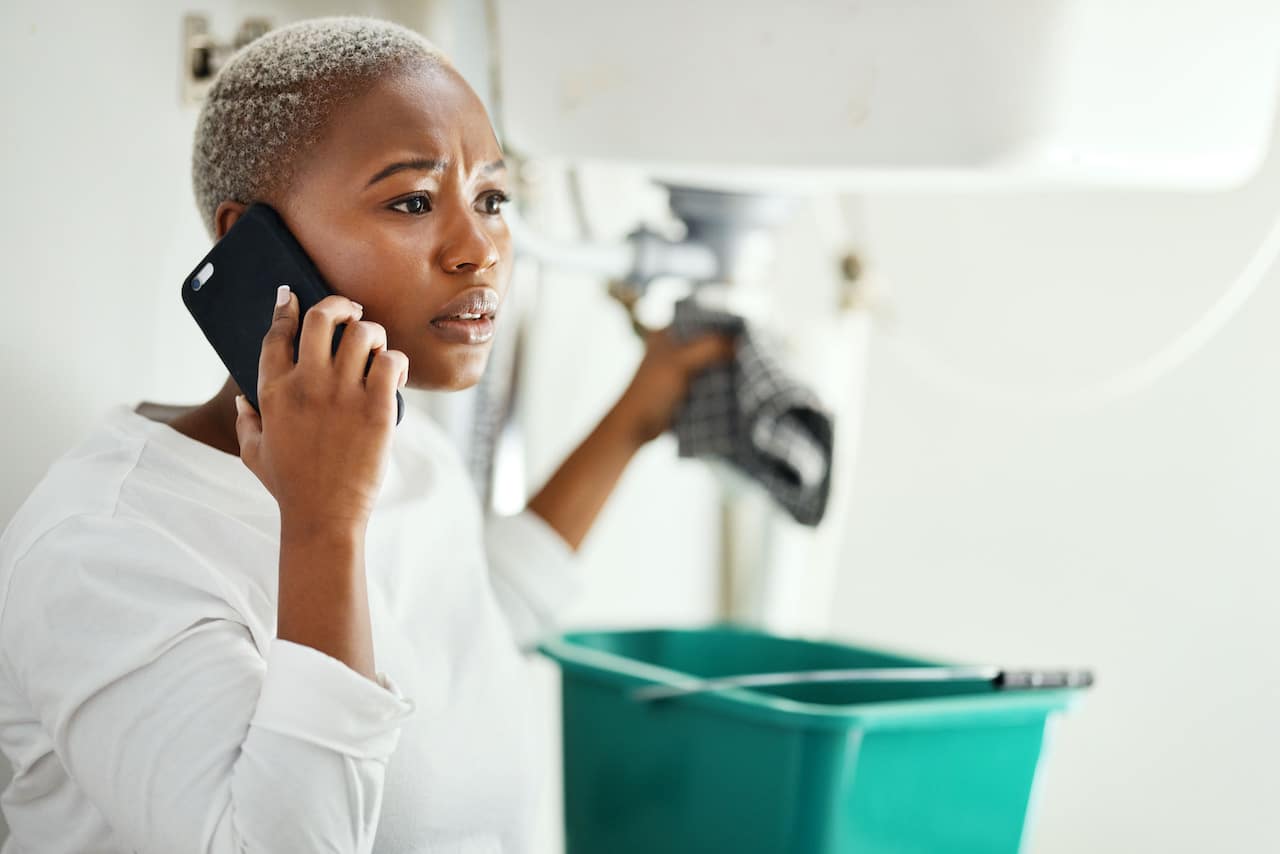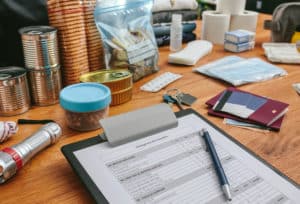A sudden gush from a burst pipe or an unexpected appliance leak is enough to ruin anyone’s day. As a homeowner, you are likely to encounter various plumbing issues, some of which can be quite costly. Coverage for water damage and accidental plumbing mishaps can offer a lifeline in these soggy situations, saving you from hefty repair bills.
You may find yourself wondering, “Does homeowners insurance cover plumbing?” For specific concerns, the answer lies in the details of your policy, but we will discuss what types of plumbing problems are typically covered and what is excluded from coverage.
What Plumbing Problems Are Covered?
While insurance plans vary, most standard homeowners insurance policies cover two major types of damage:
Sudden and Accidental Damage
Homeowners insurance typically covers sudden and accidental plumbing damage. This means that if you experience a sudden burst pipe or an appliance leak, your insurance may cover the cost of repairing the damage caused by these incidents.
Some examples of sudden and accidental plumbing problems that may be covered include:
- Burst pipes
- Appliance leaks (e.g. dishwasher, washing machine)
- Toilet overflow
- Water heater leaks
Water Damage
Water damage is one of the main concerns when it comes to plumbing, and is one of the most common homeowners insurance claims. It can be caused by a variety of issues such as pipe leaks, clogged drains, or even a faulty water heater. In most cases, homeowners insurance will cover the cost of repairing any structural damage caused by water and replacing damaged personal belongings.
What Plumbing Problems Are Not Covered?
While some plumbing problems may be covered by homeowners insurance, there are also several exclusions to consider. It is essential to review your policy carefully to understand what types of issues are not covered. Some of the most common exclusions include:
Wear and Tear
Homeowners insurance typically does not cover damages caused by wear and tear over time. This includes issues such as corrosion in pipes or old plumbing fixtures that require maintenance.
Lack of Maintenance
Neglecting to maintain your plumbing system can also impact coverage. If a problem arises due to lack of maintenance—such as a leaky pipe you ignored until it became a larger problem—your insurance may deny you coverage due to negligence.
Flooding and Sewer Backup
Flooding is not covered by homeowners insurance. This includes any damage caused by natural disasters or external sources, such as a sewer backup. However, you can purchase additional coverage for these types of events.
Specific Coverage for Water Damage
So does homeowners insurance cover plumbing and water damage of all kinds? Not necessarily. Depending on your policy, you may have the following types of water damage coverage:
- Dwelling Coverage: This includes repairs to any structural damage caused by water in your home, such as warped floors or damaged walls.
- Personal Property Coverage: This covers the replacement or repair of damaged personal belongings, such as furniture, electronics, and clothing.
- Additional Living Expenses Coverage: If your home is temporarily uninhabitable due to water damage, this coverage can help pay for additional living expenses such as hotel stays or temporary rentals.
- Other Structures Coverage: This includes any damages to other structures on your property, such as a shed or detached garage, caused by water damage.
How to Reduce the Risk of Plumbing Problems
Even with the best coverage in place to save you if the worst should happen, it is always best to prevent these issues from occurring in the first place. Here are some ways you can reduce the risk of plumbing problems and potentially avoid costly repairs:
- Regular Maintenance: Schedule routine inspections and maintenance to catch any issues before they become a major problem.
- Insulate Pipes: Insulating exposed pipes and keeping your home’s temperature above 55 degrees Fahrenheit can prevent pipes from freezing and bursting in cold weather, which can cause extensive water damage.
- Proper Usage: Use your plumbing fixtures and appliances correctly. Avoid flushing anything other than toilet paper down the toilet and avoid pouring grease or food scraps down the kitchen sink.
- Avoid DIY Repairs: Unless you have the necessary skills and knowledge, it’s best to leave complex plumbing repairs to professionals. Attempting to fix plumbing issues yourself can potentially worsen the problem or cause additional damage.
Get Covered with Bethany Insurance
When facing plumbing issues or disasters in your home, you might wonder, “Does homeowners insurance cover plumbing?” At Bethany Insurance, we understand the importance of having the right insurance to protect your home and belongings.
Our customizable homeowners insurance plans are tailored to fit your specific needs and budget. Contact us today to get a personalized quote and learn more about how we can help you stay protected.




